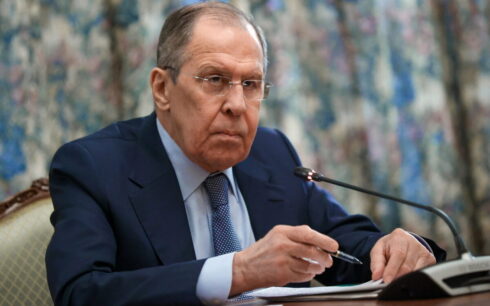Dutch Foreign Minister Caspar Veldkamp, speaking at the United Nations General Assembly, highlighted the deteriorating situation of women and girls in Afghanistan, emphasizing the joint effort by the Netherlands, Germany, Canada, and Australia to hold the Taliban accountable for human rights violations.
“The situation of Afghan women and girls is heartbreaking. They are almost entirely excluded from public life. We cannot accept this,” Veldkamp said. “That’s why the Netherlands, Canada, Germany, and Australia are holding Afghanistan accountable for violations of the Women’s Convention, CEDAW.”
Veldkamp announced the initiative in New York alongside Canadian Foreign Minister Mélanie Joly, German Foreign Minister Annalena Baerbock, and Australian Foreign Minister Penny Wong. The four countries are pressuring the Taliban to comply with the Convention on the Elimination of All Forms of Discrimination Against Women (CEDAW), which Afghanistan ratified in 2003.
A six-month ultimatum for women’s rights
The foreign ministers warned that if the Taliban fails to improve women’s rights within six months, they will refer the matter to the International Court of Justice (ICJ) in The Hague. This marks the first time a country could be summoned to the international court for gender discrimination.
A spokesperson for the Dutch Ministry of Foreign Affairs told NOS that the four countries believe there is substantial evidence that Afghanistan, under Taliban rule, has violated the U.N. treaty. The Taliban, who returned to power after Western forces left Afghanistan in 2021, have implemented strict laws that drastically restrict women’s rights. These include bans on education for girls beyond primary school, prohibitions on women entering public parks and gyms, and requirements for women to cover their faces and be accompanied by a male family member in public.
Legal action at the ICJ
Under standard ICJ procedures, the Taliban now has six months to improve the conditions for women and girls in Afghanistan. If no improvements are made, the Netherlands may propose that the Permanent Court of Arbitration handle the case. If the Afghan regime refuses to participate—which experts believe is likely—the case will be brought to the ICJ.
André Nollkaemper, a professor of international law, said it is unlikely the Taliban will cooperate. “The Taliban have not yet given any signal that they intend to participate in the international legal process,” Nollkaemper told NOS, adding that he expects the case to ultimately reach the ICJ.
While the Taliban may not comply, Nollkaemper noted that a ruling by the ICJ could still have significant impact. “A judgment stating Afghanistan has violated women’s rights would be highly authoritative. It could increase international pressure on the Taliban and potentially lead to diplomatic isolation, encouraging them to reconsider their policies.”





